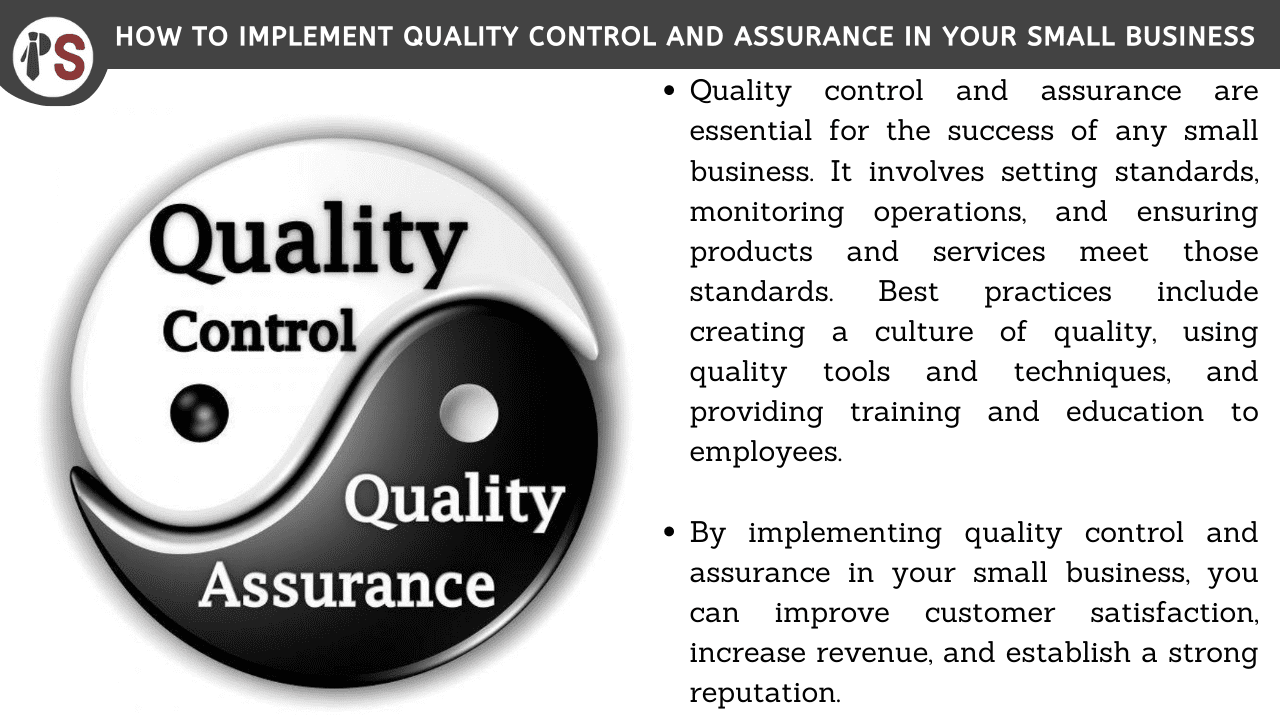
Quality control and assurance are crucial aspects of any business. It ensures that the products or services offered meet the expected standards and are consistent in quality. For small business owners, quality control and assurance can be a daunting task. However, with the right approach and tools, it is possible to establish effective quality control and assurance systems that enhance the business's reputation and customer satisfaction.
This blog will discuss the best practices for quality control and assurance for small business owners, including:
Define Your Quality Standards Before establishing a quality control and assurance system, it is crucial to define the quality standards that your products or services should meet. This involves specifying the expected quality level, requirements, and characteristics. This information should be documented and communicated to all stakeholders to ensure everyone is on the same page.
Identify Critical Control Points Critical control points are steps in the production process that are critical to the quality of the final product. Identify these points and establish controls to ensure that the product or service meets the defined quality standards. For example, in a bakery, a critical control point could be the temperature of the oven, which affects the quality of the baked products.
Create a Quality Control Plan A quality control plan outlines the processes and procedures for ensuring the quality of the products or services. It should include the critical control points, sampling procedures, testing methods, and corrective actions. The plan should also identify the personnel responsible for each activity.
Conduct Regular Quality Inspections Regular quality inspections are necessary to ensure that the products or services meet the defined quality standards. Inspections should be conducted at different stages of the production process, including raw material inspection, in-process inspection, and final product inspection.
Implement Continuous Improvement Strategies Continuous improvement is critical to enhancing the quality of products or services. Small business owners should regularly review their quality control and assurance systems and identify areas that need improvement. They can then implement strategies to improve these areas, such as training employees or upgrading equipment.
Use Technology to Enhance Quality Control Technology can be a valuable tool in enhancing quality control and assurance. Small business owners can use software to automate processes, track quality metrics, and generate reports. This can help to identify areas that need improvement and streamline the quality control process.
In conclusion, quality control and assurance are essential for small business owners who want to provide high-quality products or services to their customers. By defining quality standards, identifying critical control points, creating a quality control plan, conducting regular quality inspections, implementing continuous improvement strategies, and using technology, small business owners can establish effective quality control and assurance systems that enhance their reputation and customer satisfaction
At Professional Saathi, we offer a range of business consultancy services that help businesses improve their performance, achieve growth, and overcome challenges.
Copyright 2026 © Created By KTPG PROFESSIONAL SAATHI CORPORATE CONSULTANT PRIVATE LIMITED, All Rights Reserved.
Leave Your Comment